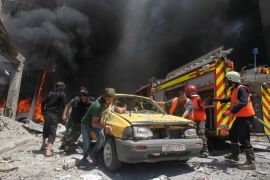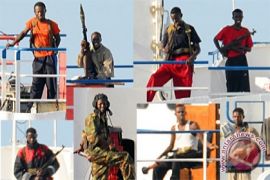A small number of gunmen from the Al-Qaeda affiliated Shebab militia were still in war-torn Mogadishu after their surprise pullout by the bulk of their forces on Saturday morning, with skirmishes breaking out.
"Government troops and the African Union troops moved into several positions, including Mogadishu stadium," said Yusuf Dhegobadan, a senior government army officer.
"We are still maintaining cautious advancement into the stronghold of the Shebab fighters", he told reporters, speaking at the city`s stadium, which until Saturday had been a rebel stronghold.
AU-backed government troops have been battling Shebab rebels in Mogadishu to secure aid delivery routes for victims of the drought threatening more than 12 million people in Somalia and other east African countries.
Until Saturday morning, government and AU troops controlled just over half of Mogadishu, including the airport and port, while the Shebab controlled the city`s northeast.
"There are few of the Shebab trying to benefit from the advancement of our troops, carrying out desperate attacks," Dhegobadan added.
"But we are progressing cautiously, and we will eliminate them very soon."
Government officials celebrated the hardline rebel pullout, but a Shebab spokesman said Saturday that the withdrawal was merely "a change of military tactics."
The Shebab had for two years been promising to topple the Western-backed government in Mogadishu, but always fell short of smashing its last defences despite a deadly and costly offensive.
The UN has officially declared famine for the first time this century in Somalia, including in Mogadishu and in four southern Somali regions, and warned that the famine could spread.
Much of southern Somalia -- including the majority of regions declared to be in famine by the UN -- is controlled by Shebab rebels, who continue to ban several key aid agencies from operating.
Drought-hit Somalia is "the most severe humanitarian crisis in the world today and Africa`s worst food security crisis since Somalia`s 1991-92 famine," the UN has warned. (*)
Editor: Kunto Wibisono
Copyright © ANTARA 2011






